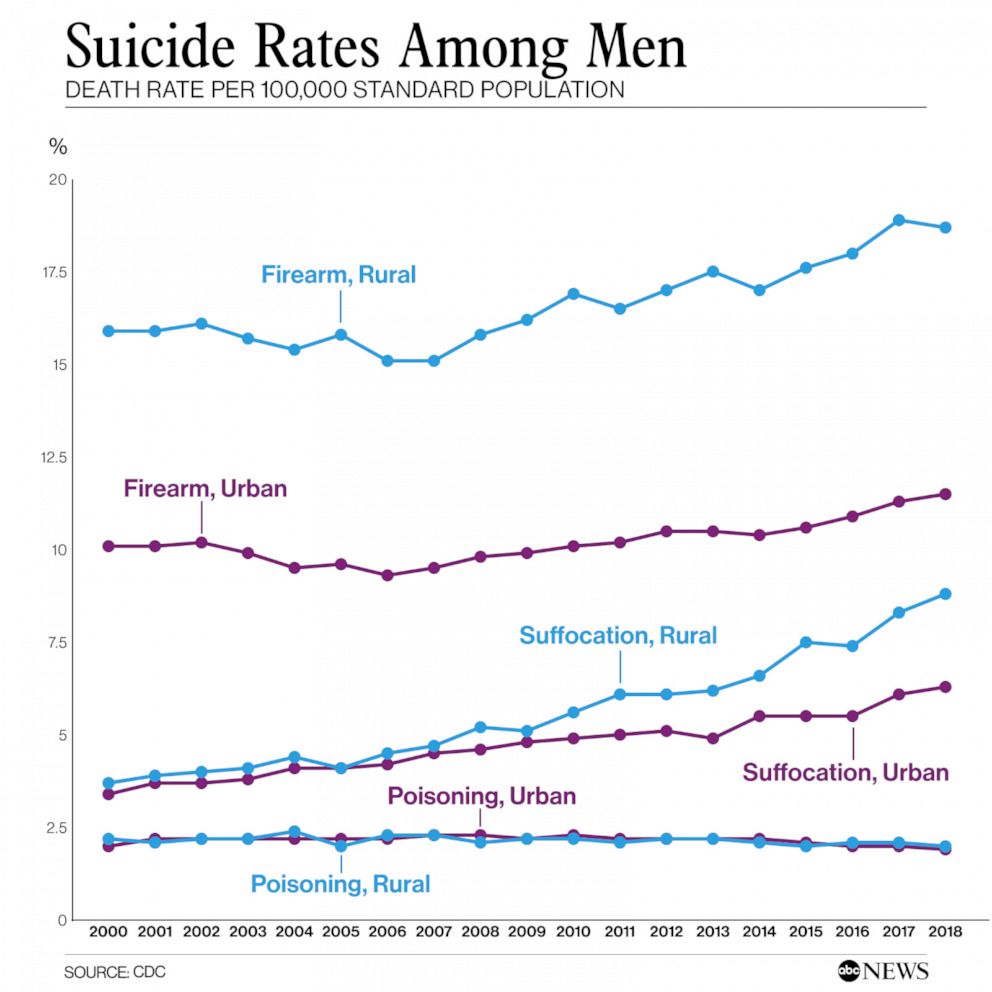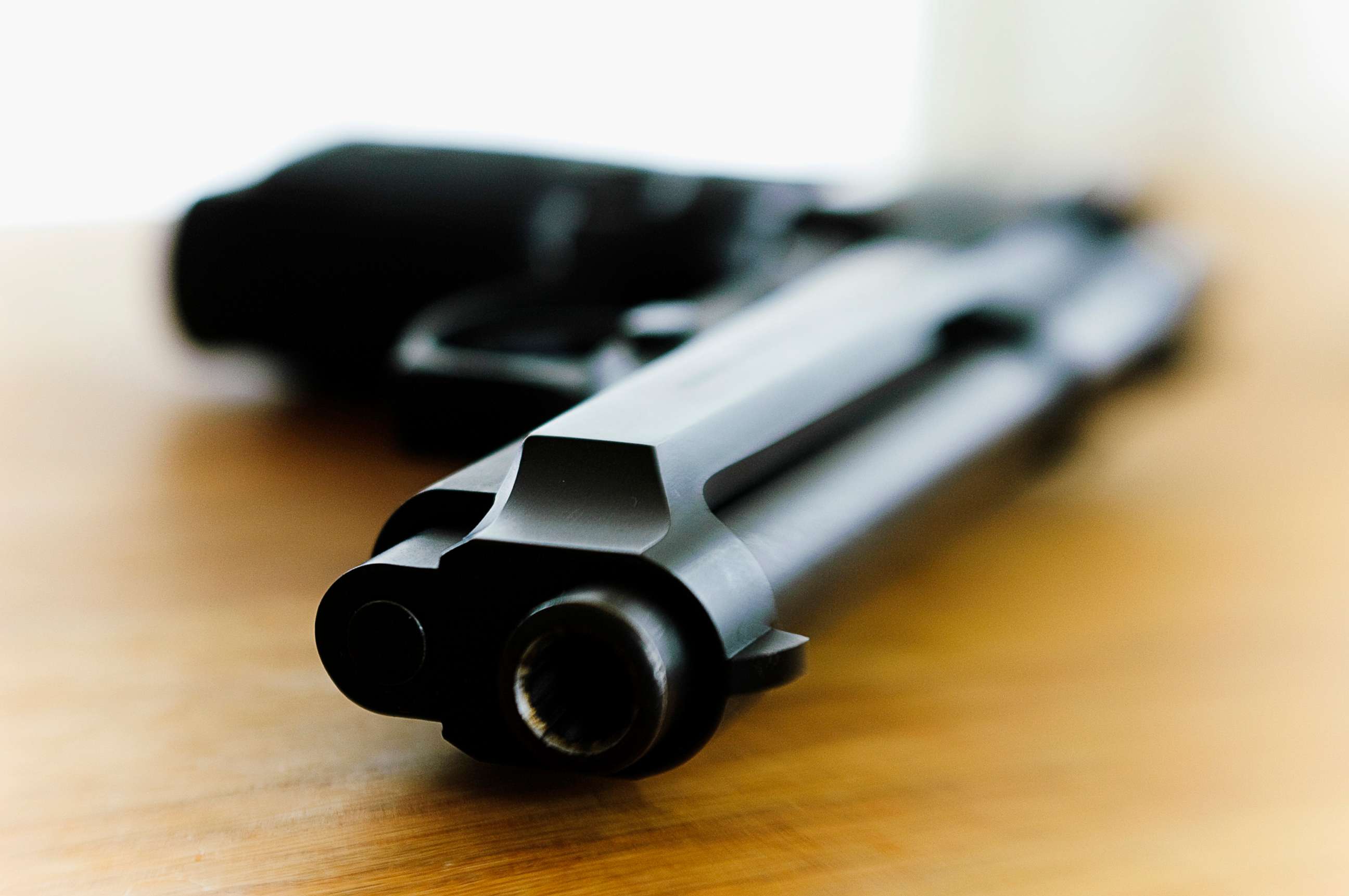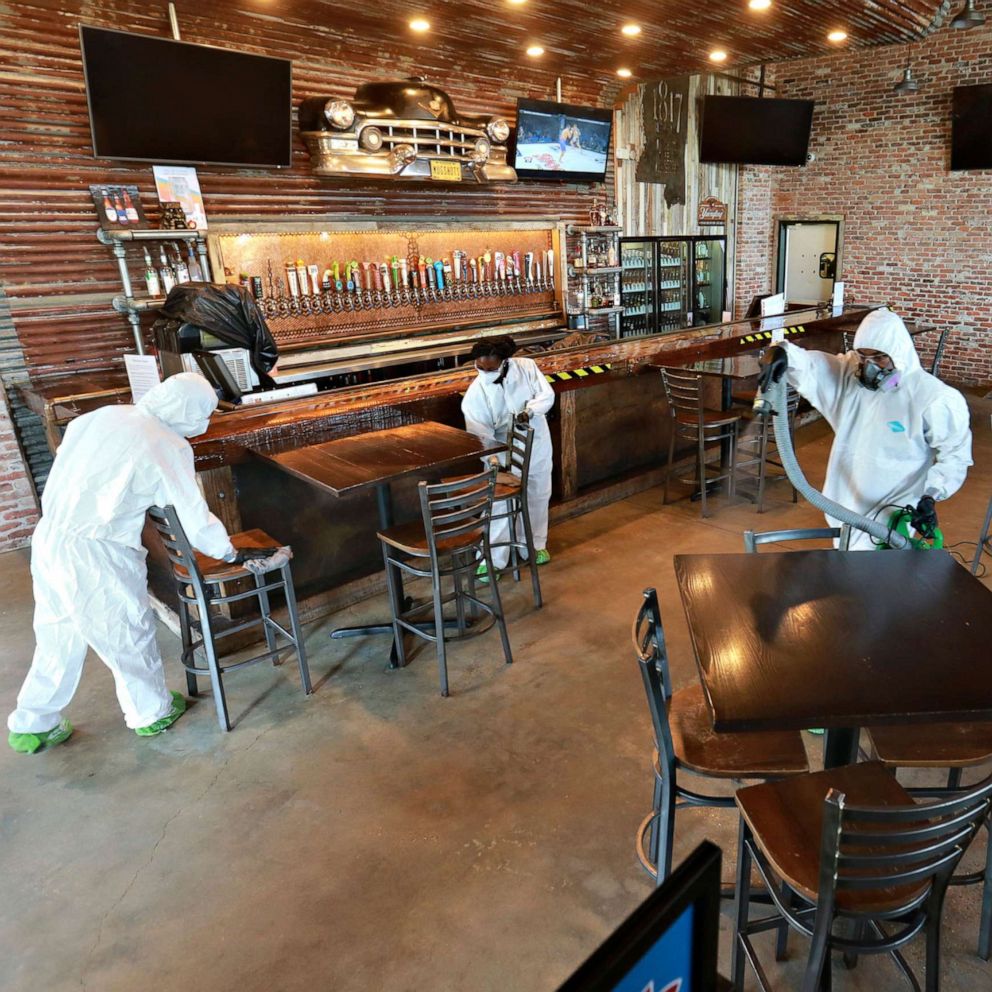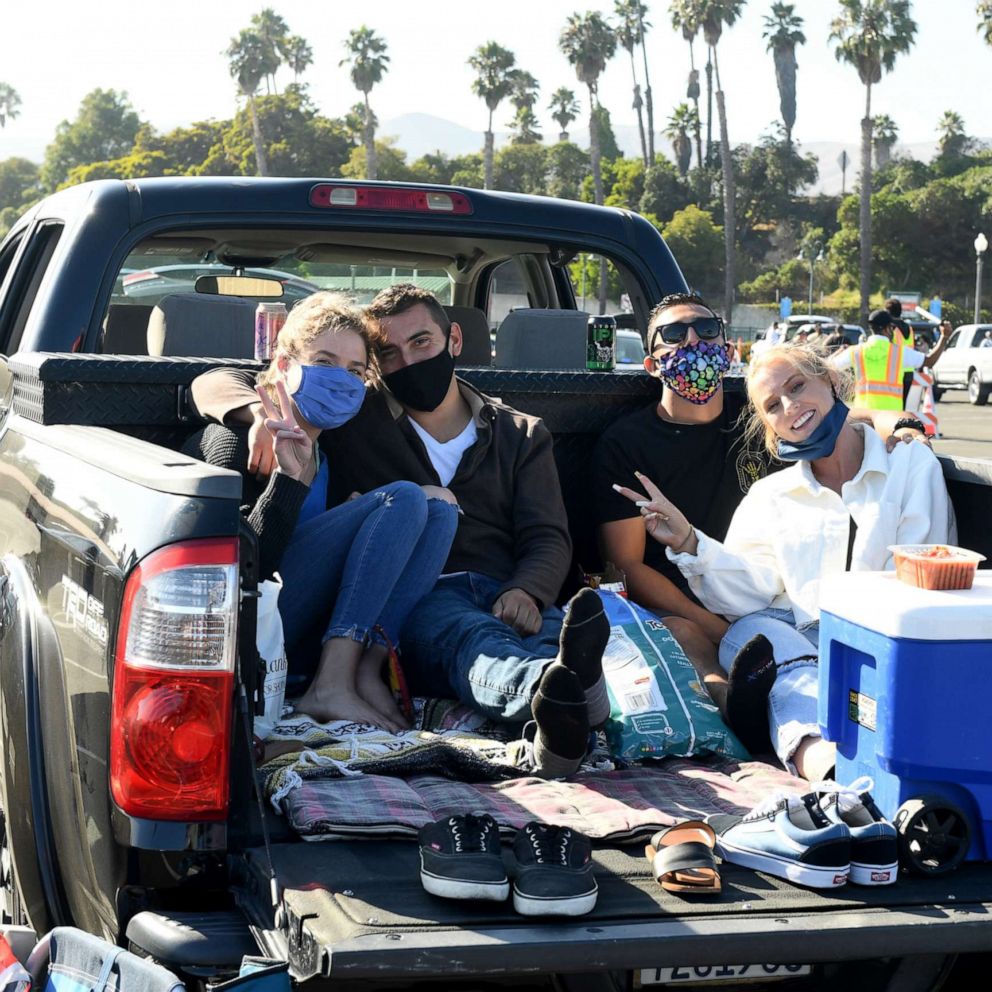Gun suicide rates were rising even before the pandemic: CDC
The pandemic's mental health toll could drive suicide rates even higher.
Even before the pandemic, suicide rates in the United States were rising, according to a new government report.
While suicide rates in both urban and rural areas rose steadily between 2000 and 2018, the pace of increase quickened in rural areas after 2007, rising 3% every year compared to the 1% increase seen each year between 2000 and 2007, the National Center for Health Statistics report found.
As it stands, suicide is the 10th leading cause of death in the United States, according to the Centers for Disease Control and Prevention. For both men and women, firearms are the most common suicide method.
Men are especially at risk for firearm suicide. Between 2006 and 2018, gun suicide among men climbed 24% in rural and urban areas.

Importantly, the NCHS mortality data is retrospective, meaning it does not include suicides in the U.S. that occurred during the coronavirus pandemic.
There are, however, early indicators that the pandemic is taking a toll on mental health, which could potentially drive the country's suicide rate even higher.
A CDC survey from late June found that 40% of U.S. adults reported struggling with mental health or substance use issues during the pandemic. There was also a striking number of those surveyed who reported seriously having considered suicide in the 30 days prior to taking the survey. Among those respondents, those mostly likely to say they had considered suicide were young, Hispanic or front-line workers.
A quarter of people between the ages of 18 and 24; 19% of Hispanic respondents; 31% of caregivers for adults; and 22% of essential workers said they had seriously considered suicide in the past month.
Gun sales also spiked during the pandemic, with an estimated 2 million excess weapons purchased between March and May than normally would have been bought, according to data from the Federal Bureau of Investigation's background check system.
Kelly Posner Gerstenhaber, a professor of psychiatry at Columbia University, worries that the pandemic will create a confluence of risk factors for suicide.
"There are so many pieces of the formula that increase the risk in a way that we haven't seen before," Posner said. Social isolation, financial stress and job loss, medical concerns, deaths among family and friends, and increasing depression and anxiety rates are all risk factors.
"It feels almost overwhelming," Posner added. It's a tsunami of risk factors."
That tsunami includes the state of perpetual uncertainty that COVID-19 has ushered into our lives. No one knows what the world will be like next week or next month. "Uncertainty is the lynchpin of anxiety and panic," she said.
Then there's the pandemic gun-buying boom. According to a Harvard Public Health report, "a gun in the home raises the suicide risk for everyone: gun owner, spouse and children alike."
"Even if they are buying that gun because they want to protect their loved ones, significantly more people now have access to that weapon, while depression and suicide risk are on the rise," Posner said.
It's not yet known what percentage of people who bought guns during the pandemic were first-time guns owners versus people who already had weapons at home.

Still, Posner, who was awarded a medal from the Department of Defense for her work on suicide prevention in 2018, stressed that rising suicide rates and pandemic-related risk factors should not make Americans feel helpless.
She pointed to a free tool she helped develop, known as the Columbia Protocol, a short set of questions to make it easier for people to talk with loved ones who may be at risk for suicide.
Starting a conversation about mental health with family and friends can also have reciprocal benefits during a time when many Americans report feeling lonely or isolated, she noted.
"One thing we've learned from other mass traumas is that when you're helping others, it actually helps you heal," Posner said. Being there for your friend, for your neighbor, for your family members helps you feel good and also protects them."
If you are struggling with thoughts of suicide or worried about a friend or loved one help is available. Call the National Suicide Prevention Lifeline at 1-800-273-8255 [TALK] - for free confidential emotional support 24 hours a day 7 days a week. Even if it feels like it – you are not alone.
What to know about the coronavirus:
- How it started and how to protect yourself: Coronavirus explained
- What to do if you have symptoms: Coronavirus symptoms
- Tracking the spread in the U.S. and worldwide: Coronavirus map
Tune into ABC at 1 p.m. ET and ABC News Live at 4 p.m. ET every weekday for special coverage of the novel coronavirus with the full ABC News team, including the latest news, context and analysis.







